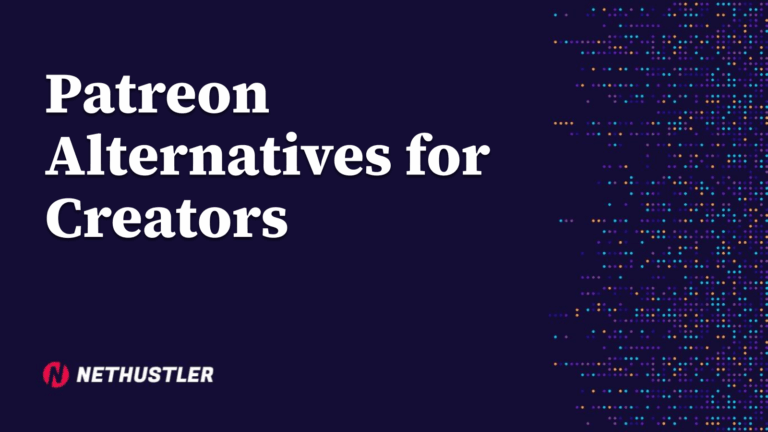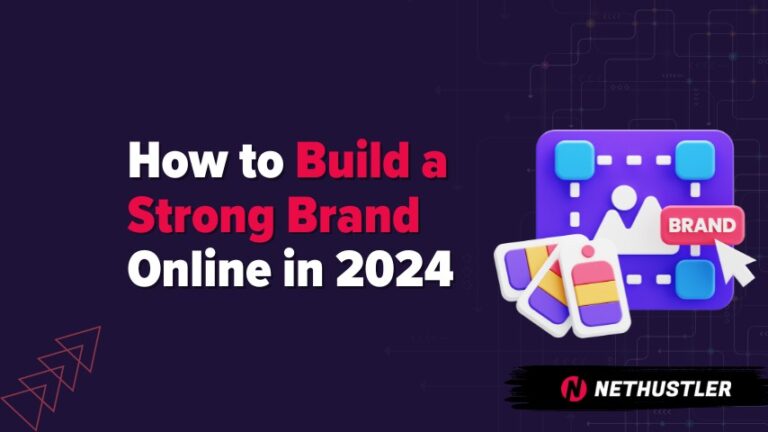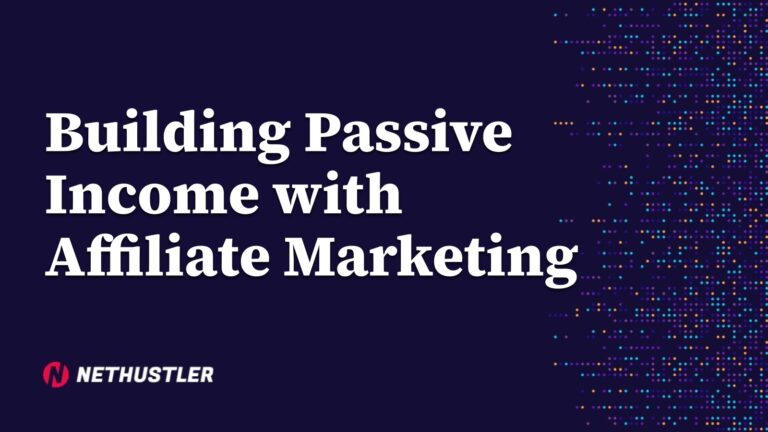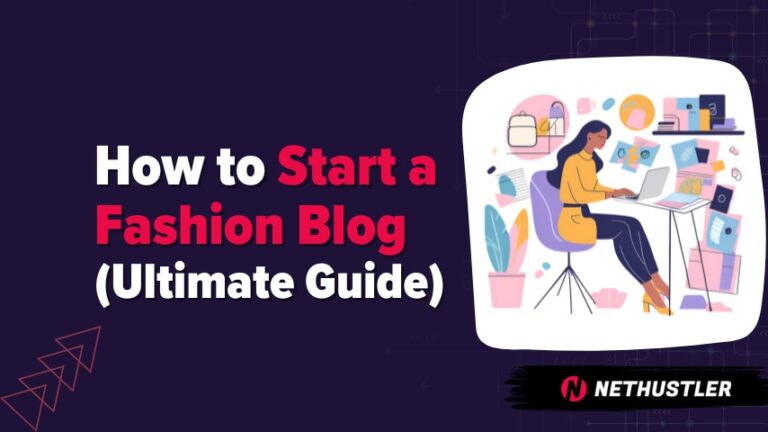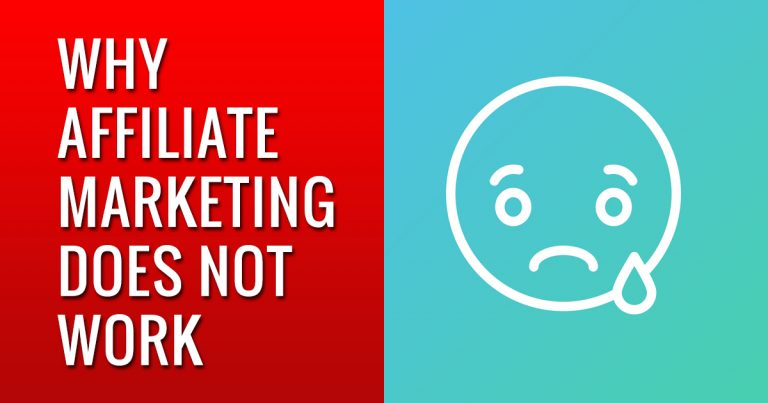Impact of AI on Digital Marketing: My Thoughts
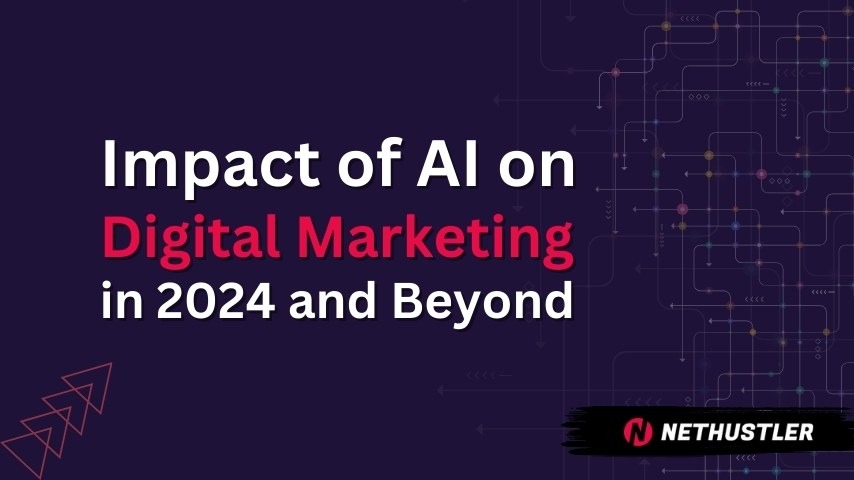
It’s almost two years since my last blog post on NetHustler. Time flies, doesn’t it? During this time, I’ve been busy with some of my other sites and blogs but also testing and examining the impact of AI on digital marketing – is it truly helpful or just another gimmick?
Alright, let’s get something out of the way first: AI is officially no longer the futuristic tech that only nerds and billion-dollar companies mess with.
It’s here, it’s loud, and it’s already working its way into every nook and cranny of digital marketing.
If you’re still trying to figure out where it fits in, spoiler alert: it’s everywhere.
I’ve used it to grow a website from 50,000 visitors a month all the way up to 400,000, in just a couple of months. But more on that in another post.
For now, let’s unpack how AI is flipping digital marketing on its head and what that means for anyone trying to make a buck online.
AI: Your New Marketing BFF (Like It or Not)
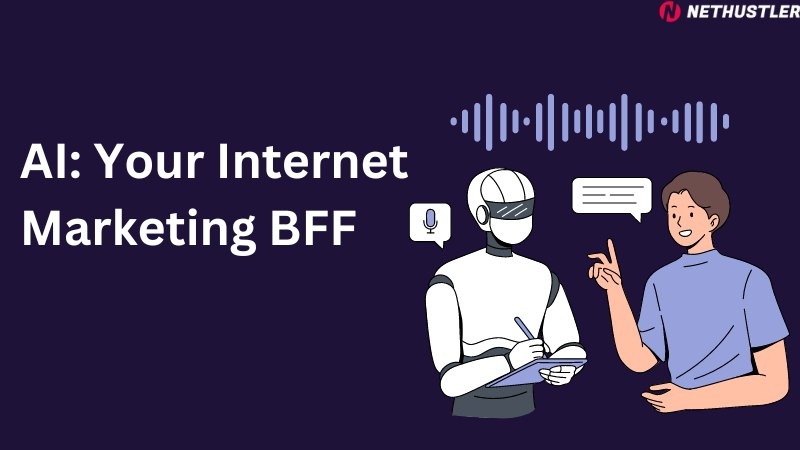
Remember back when “personalization” was just slapping someone’s name at the top of an email and calling it a day? Good times. But that’s child’s play now.
AI is going beyond that – we’re talking next-level stuff.
It’s learning what your customers want, sometimes before they even know they want it. Kinda creepy, right?
AI’s got all these fancy algorithms crunching data faster than any of us can blink. Now, instead of guessing who might like that new product you’re pushing, AI is over here giving you the exact people most likely to click, buy, or at least care.
And don’t even get me started on predictive analytics, because, yeah, AI is basically a mind reader at this point.
SEO: Get Ready to Adapt… Again
Look, SEO has always been a moving target, right? But now with AI, you can’t just throw a bunch of keywords on a page and pray that Google will rank you.
AI-powered SEO tools like SurferSEO and Clearscope are reading the internet in ways that’ll make your head spin. They don’t just tell you which keywords to use, they’re like, “Hey, this is what actual humans want to read, so how about you write something decent?”
AI’s making SEO more about intent and context than ever before. You can’t fool the bots anymore. It’s gonna require more strategy and less keyword stuffing, but trust me, it’s for the better.
Why?
Because no one wants to write long-ass blog posts just to make Google happy. We’ve done it because our competition did it, and at one point that’s what Google or any other search engine wanted. More content = more keywords, more details, more info for the user.
But nowadays with the attention span of everyone being so low (thanks TikTok), it makes sense that shorter yet highly informative content should be better. Not always the case, but yeah, I’ve seen first spot results in Google with just 150-200 words, so it’s possible.
See my short vs long-form content article for more of my ramblings about this.
But to get back to the point (which is actually the point here, duh), focus on creating good, awesome, helpful content, and don’t look at the number of words and increase those just for the sake of it, don’t OVER optimize SEO for your article also, stop keyword-stuffing your headings, and just write as you would write for a friend, not for the machines.
Speaking of machines, it’s not just about Google anymore. You also have to think about how you appear in AI-driven results like ChatGPT or Perplexity. If you’re wondering how to actually optimize for these bots, I’ve put together an AI Visibility Checklist, it’s an Airtable of specific actions you can take to make sure your brand is the one the AI recommends.
Ads on Steroids
Alright, ads. We all hate ‘em, but we all need ‘em. Here’s where AI is actually making a difference: ad targeting and optimization. Facebook and Google?
Yeah, they’ve been playing around with AI-driven ad systems that are way better at getting your ads in front of the right eyeballs.
The thing is, AI can optimize your ad campaigns in real-time. No more endless split tests and guesswork, AI adjusts your bids, tweaks your creative, and shifts budget faster than you could ever dream of doing manually. And honestly, it’s scary how effective it can be once you get it dialed in.
But you gotta be careful because from my own testings the AI and “done for you” ads on both Facebook and Google proved to be a bit more expensive and got worse results. But this is anecdotal evidence so it depends on your niche and targeting obviosuly.
AI Content: Hype or Hope?
Alright, I know what you’re thinking—can AI really write? Look, tools like Jasper or Copy.ai are popping up everywhere, and some people swear by them.
Sure, AI content has its place, especially for routine stuff. Product descriptions? Blog outlines? Social media posts? AI can churn those out faster than you can say, “I need more coffee.”
But, and this is a big but: it’s not perfect. You’ll still need to finesse it. AI isn’t going to win any Pulitzer Prizes, but if you’re drowning in deadlines, it’ll at least give you a decent jumping-off point. So, don’t be afraid to let AI help out—but don’t rely on it for everything.
Can it create good and helpful content that you can use on your blog or website?
Yeah it can, but then again, look what happened earlier this year with the AI spam and content update apocalypse from Google that wiped nearly 40-45% of unoriginal results from their search engine. Remember at the start of this article how I said I grew a site using AI (content and images) from 50k visitors a month all the way up to 400k? Well, guess what happened? It got murdered 🙂 It was a test anyway but yeah…
Do you really want to gamble in creating a site with AI content and running for a while only to get knocked down when the next update happens? I doubt it.
But then again, millions of people are doing it, so who cares I guess. If you can bank before they de-rank you, then that’s good, you start again and that’s it. But it’s not always as easy as that.
I would advise you to focus on creating awesome content for your blog, but get help from AI to ease your workflow such as:
- Coming up with content ideas
- Creating article outlines
- Giving you extra details and research about specific points (double check this to be accurate)
- Create unique and beautiful visuals/media for your content
- Social media stuff
- Update old blog posts
- Create scripts for videos
- etc.
Basically you don’t want to go to ChatGPT and say: “Hey, I need an article titled: “How to Gain More Muscle”.
This will give you a reasonably good article, but you don’t want to use that and copy/paste it directly into your blog. That’s a big no-no, because even if Google says it doesn’t care about AI content (doubt it), they still care about AI spam content, so if all your articles are made with AI, imagine what they will think.
You will get flagged. Not only that but, how is this unique content? Where is your personal touch?
What did you do to that article to differentiate it and make it better than the thousands of other articles on this subject?
See my point?
Why would Google or any other search engine rank you in first spots for that?
It’s like giving Gordon Ramsey a piece of fried chicken breast that’s unseasoned and dry, I can already hear him: It’s bland, it has no flavor, no taste. Throw it away.
Well, in my mind that’s how the search engines operate now (Google especially). I might be wrong, after all there are 1000+ end points and signals that Google’s algorithm bases their rankings on but yeah.
AI Chatbots
Remember when chatbots used to be a joke? Yeah, not anymore. AI-powered chatbots are getting better.
They can handle more complex queries, respond in a natural way, and save you a ton of time with customer service. With natural language processing (NLP), these bots are starting to understand context, intent, and even emotion.
Whether you’re running a small biz or a massive ecommerce site, a well-trained AI chatbot can handle the basics, leaving you free to focus on bigger fish such as acquiring traffic to your website or business.
But please make sure you don’t disturb and irritate your user with it, use it to actually help them when they have a problem and always have a real person able to take control and help the user directly (or at least have a way to connect/email you and not make your visitors rely on the chatbot for their support). I even did a little rant about how AI chatbots are annoying, so use them in a way that doesn’t interrupt a user’s flow.
A chatbot is not the way to handle customer support without involvement of real people. Just my opinion.
But Hold Up: Is This All Cool?
Alright, let’s get real for a sec. We can’t talk about AI without addressing the ethical elephant in the room.
Sure, AI is making marketing easier and more effective, but it also opens up a ton of privacy concerns. How much data is too much?
Where’s the line between “helpful suggestion” and straight-up manipulation?
Marketers are walking a fine line here. If you start using AI in ways that feel too invasive, you’re gonna lose trust, fast. Transparency is key. People need to know what data you’re using and why. Otherwise, it’s just a matter of time before regulators come knocking.
But then again don’t just look at what regular marketers are doing, look at what Microsoft, Google and Meta are doing. For example Google’s AI overviews and AI search results is straight up content copied from websites that I and you run.
So how is that ethical or cool? When you consider all the penalties on AI content that Google has unleashed on March 8 of this year, then it begs the question: Why are only the big boys allowed to do it?
So any search engine and chatbot can give users answers based on data scraped from our sites, robbing us of clicks and revenue, but it’s not cool when we use it right? Yeah… awesome deal.
The Bottom Line
So, where does this leave us? AI isn’t the future—it’s the now. If you’re not using it in your digital marketing strategy, you’re already behind.
Whether it’s optimizing ads, predicting customer behavior, or automating content creation, AI is changing the game. And yeah, there are ethical challenges and technical hiccups, but let’s face it, this is the direction things are heading. You either adapt or get left behind.
Alright, that’s it from me. Time to get your AI game on before 2026 makes you look like you’re living in the dark ages.

